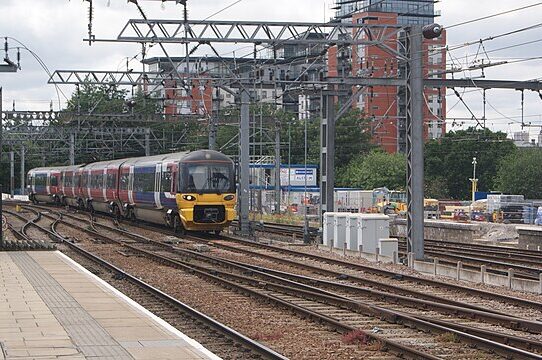
The impact of climate change on the UK’s transport networks has been sounding alarm bells, with warnings that travel disruption will worsen unless substantial investments are made.
Sir John Armitt, chair of the National Infrastructure Commission and a government advisor, delivered this stark message, emphasising that the country faces a crucial choice between accepting more frequent travel disruptions or committing more resources to maintenance and upgrades.
Network Rail’s safety and engineering director Martin Frobisher said companies were “racing to catch up”.
He insisted more was being spent than ever and technology was improving, but “every year we…break records on heat, on rain, on wind”.
The UK has been experiencing the repercussions of climate change through intense rainfall and heatwaves, which have taken a toll on road and rail travel. These weather extremes have resulted in flash floods, landslides, and equipment failures, causing significant disruptions in transportation.
Network Rail’s safety and engineering director, Martin Frobisher, acknowledged the ongoing challenges and the need for increased investment. While he highlighted that more money than ever before is being allocated to infrastructure improvements, he also underscored the relentless nature of climate-related problems. The UK consistently faces new records in terms of heat, rain, and wind, pushing the limits of existing infrastructure.
Sir John Armitt admitted that leaders, including himself, may have underestimated the speed and impact of climate change. He pointed out that important societal and political choices lie ahead concerning the reliability of the country’s transport networks in the face of climate challenges.
The effects of climate change on transportation are already evident. Last summer, heatwaves led to widespread train cancellations due to issues such as buckled rails and fallen overhead power lines. Railway tracks are designed to withstand a specific temperature range, but extreme heat can cause them to warp. Additionally, sagging overhead power lines can become entangled in train equipment and be pulled down.
Climate-related events like hot and dry weather followed by heavy rain can trigger landslides and flash flooding. Network Rail, responsible for maintaining extensive railway networks in Britain, is taking measures to adapt. Investments in drainage have increased, and remote rail temperature monitoring technology has been deployed. Simple interventions, such as painting rails white to reduce overheating, are also part of the strategy.
Following a tragic incident in August 2020, when a train collided with a landslide near Stonehaven in Aberdeenshire, Network Rail developed software to predict sudden and torrential rainfall, enhancing safety measures.
In addition to railways, major roads are susceptible to extreme weather conditions. New drainage standards have been introduced to align with future climate projections, and road surfaces are being modified to withstand high temperatures without melting or cracking. Extreme weather events exacerbate another perennial issue: potholes.
The message from experts like Sir John Armitt and Martin Frobisher is clear: the UK must invest in its infrastructure to adapt to the changing climate. They emphasise that the country’s ability to respond to these climate challenges is directly related to the level of investment in transportation networks. In the face of climate change, infrastructure resilience and sustainability are paramount to ensure the continued functioning of vital transportation systems.
——————————————————————————
At Natural World Fund, we are passionate about stopping the decline in our wildlife.
The decline in our wildlife is shocking and frightening. Without much more support, many of the animals we know and love will continue in their decline towards extinction.
When you help to restore a patch of degraded land through rewilding to forests, meadows, or wetlands, you have a massive impact on the biodiversity at a local level. You give animals a home and food that they otherwise would not have had, and it has a positive snowball effect on the food chain.
We are convinced that this is much better for the UK than growing lots of fast-growing coniferous trees, solely to remove carbon, that don’t actually help our animals to thrive.
This is why we stand for restoring nature in the UK through responsible rewilding. For us, it is the right thing to do. Let’s do what’s right for nature!
Donate today at https://naturalworldfund.com/ and join in the solution!

